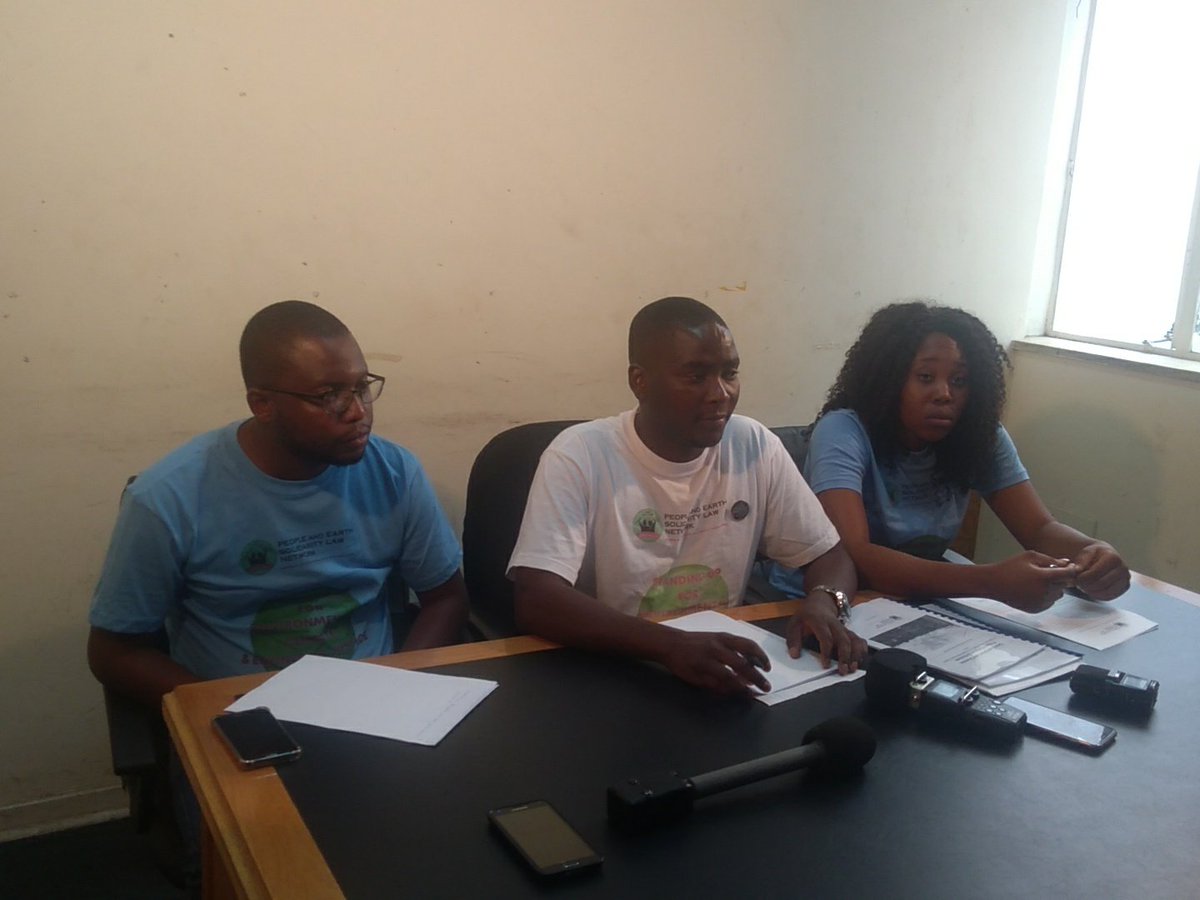The People and Earth Solidarity Law Network (PESLawyers) report has said the disaster that occurred at the large-scale miner RioZim Limited owned Cricket Mine and at Silver Moon Mine in the Battlefields was avoidable and painted shortcomings within the artisanal and small-scale mining sector (ASM).
PES Lawyers said the effects of the disaster are still being felt and will continue to blight the nature of environmental, social and economic justice in Zimbabwe, and by extension in the Global South. The report is entitled ‘Gold Capitalism and Disaster Preparedness in Zimbabwe: A Preliminary Critical Report on the Battlefields Mines Disaster 2019’
The night of Tuesday 13th February 2019 was the starting point of an inevitable disaster in Zimbabwe, as artisanal gold miners in the Mashonaland West settlement of Battlefields who had gone underground for their usual tasks of digging for ore became trapped. Within the following few days, the magnitude of the disaster was to be felt by the nation and the world as media houses reported of over 20 miner deaths as well as reports of between 50 and 100 trapped miners.
The accident exposes many issues concerning economic and environmental justice in Zimbabwe. These issues range from lack of disaster preparedness by the State, responsible institutions and local authorities as well as the culpability of large-scale gold miners who retain yet underutilise gold claims.
“The painful accident invites the need for a critique of the current nature of gold capitalism, disaster preparedness and the unequal and class nature of environmental and economic justice in Zimbabwe and by extension on developing States in the Global South. This preliminary report pieces together the reports of on the ground volunteers and activists aligned to the People and Earth Solidarity Law Network (PESLawyers), media coverage as well as miner groups and concerned individuals and institutions.”
The report makes several preliminary findings and observations: 1. Large Scale Miners like RioZim are exploiting the nature of Property Rights in Zimbabwe 2. The State capacity for disaster preparedness and management is worrisome 3. The Battlefields Disaster is a clear case of constitutional and human rights violations 4. The lack of statutory Ministerial orders on the protection of the environment 5. The Environmental Management Agency monitoring and management role seemed inadequate 6. Miner groups and federations lack adequate social and technical support systems for their sector.
The People and Earth Solidarity Law Network (PESLawyers) also came up with several demands and recommendations so that people do not continue to needlessly suffer from the injustice occasioned by a greedy mode of production: These are as follows: 1. Rethinking the nature of Property Rights in the Gold Mining Sector. The large-scale gold mining sector has held unutilised block of mines, and this is an inevitable feature of the current economic system. 2. Disaster Response systems should be evaluated and adequately funded 3. An inclusive, free and open Commission of Inquiry into the Battlefields Disaster is pertinent. This commission should also analyse property right restrictions occasioned by large scale gold mine ownership and underutilisation of gold claims and blocks as well as on what really occurred during the Disaster. 4. The Minister of Environment should indicate whether orders were issued for the rehabilitation of Cricket and Silver Moon Mines 5. The Environmental Management Agency (EMA) should be more efficient in implementing its statutory roles.
Finally, this preliminary report has since been forwarded to relevant institutions to give them the right of response in accordance with the tenets of natural justice. These institutions include the Ministry of Mines, Ministry of Environment, RioZim Limited, the Chamber of Mines of Zimbabwe, The Environmental Management Agency, The Civil Protection Department, The Parliamentary Portfolio Committee on Mines and Energy and the Zimbabwe Miners Federation.
“Following the release and after deliberating on the responses from these parties, as an organisation, and in the public interest, the People and Earth Solidarity Law Network will announce on further actions. We have a host of choices going forward, these include public interest litigation on behalf of affected people and the wilder community as these fall within our mandate as a non-profit environmental law and justice organisation in Zimbabwe,” said Lenin Tinashe Chisaira, PES Lawyers Executive Director.






